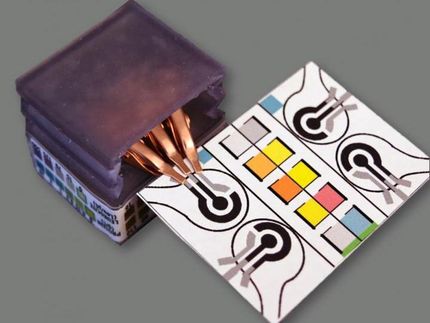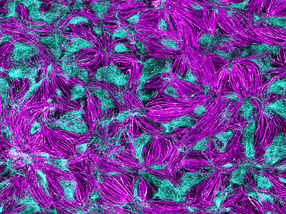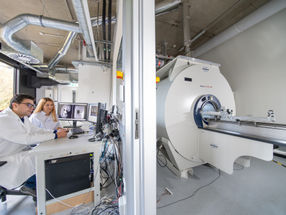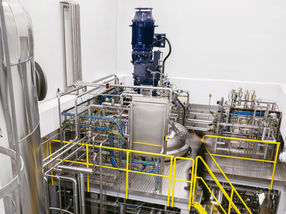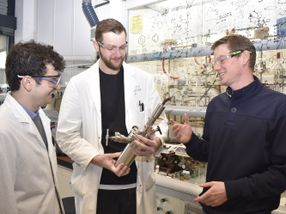deCODE Provides Update on Growing Pipeline
Phase IIa trial of DG031, progress towards the clinic in PAOD, stroke and asthma, solid financials underpin development of novel drugs for major indications
Reykjavik. deCODE genetics provided an update on its lead drug development programs and the application of its population genetics resources to the clinical development process, in connection with the company's annual analyst and investor event being held in Reykjavik.
Among the highlights to be discussed at the event:
Heart Attack - DG031
The Phase IIa information-rich clinical trial (IRCT) of DG031, a developmental compound for the prevention of heart attack, will be completed at the end of August with data to be presented in September or October. The trial will gauge the effect of different dosing schedules on key biomarkers associated with heart attack. The company plans to use the data from the current trial in the design of a multi-center, Phase III registration trial for prevention of a second heart attack in those who have already suffered one. Recruitment for this trial will be optimized using both genetic tests and biomarkers correlating with elevated disease risk, enabling a powerful trial of approximately 18 months' duration that will require a relatively small number of patients. If successful in development for the prevention of second heart attacks, the company plans to extend the labeling for DG031 to the prevention of heart attack in those who have never suffered one, and to the prevention of stroke.
PAOD - D151746
Earlier this month, deCODE advanced its lead compound for the treatment and prevention of peripheral arterial occlusive disease (PAOD) into IND-enabling preclinical safety studies. D151746 is an inhibitor of a G-protein coupled receptor (GPCR) encoded by a gene deCODE has shown to confer a two- to seven-fold increase in risk of developing the disease. The clinical development plan for the compound, following the IRCT paradigm, will employ DNA-based diagnostic tests for disease risk assessment as well as clinical and imaging studies of the effectiveness of the compound on controlling and possibly reversing atherosclerosis in the legs. The company plans to file an IND on D151746 by the end of this year and aims to begin Phase I clinical trials in the first quarter of 2005.
Stroke
deCODE's drug discovery group has demonstrated that inhibition of the PDE4D enzyme, encoded by a gene the company has shown to play a key role in the pathogenesis of stroke, may provide a powerful and targeted means of reducing stroke risk. The company has already identified compounds in three lead series that inhibit PDE4D. deCODE is also evaluating opportunities for in-licensing or partnering to acquire PDE4 inhibitors developed for other indications. Leveraging the company's extensive population data on stroke, the IRCT paradigm may enable deCODE to enter an existing compound directly into clinical trials; to evaluate its effectiveness in preventing recurrent stroke with a relatively small trial of limited duration; and subsequently to test effectiveness in primary prevention using genetic tests and biomarkers to identify broad groups of individuals likely to benefit from a specific preventive therapy.
Asthma
The company is actively exploring in-licensing and partnership opportunities for the development of compounds inhibiting the company's kinase target in asthma. The gene encoding the kinase was isolated by deCODE and certain haplotypes containing the gene confer an up to threefold increase in risk of disease. The company has several thousand participants in its asthma research, and a wealth of data that can be readily employed in the design and conduct of an IRCT.
Diagnostics
DNA-based diagnostics offer a significant secondary avenue for the commercialization of deCODE's gene discovery programs, as well as an integral means of identifying large patient populations likely to respond well to drugs developed on the basis of genes contributing to the onset of disease. The company believes that there is a major opportunity for the development of a DNA-based cardiovascular disease risk panel that can identify individuals at high-risk for heart attack, stroke and PAOD. deCODE and Roche Diagnostics continue to advance a DNA-based predisposition test for osteoporosis, which the companies believe will be the first product under their alliance.
Finance
With a streamlined cost structure and solid cash position, deCODE has the infrastructure and financial resources to bring its growing pipeline of drugs into advanced clinical trials. To the $97.0 million in cash and cash equivalents the company held at the close of the first quarter of 2004, deCODE has added the proceeds from its $150 million convertible bond offering completed in April. The company reiterated the current year revenue and cash-burn guidance provided in its conference call on 2003 year-end financial results.
Other news from the department research and development
Most read news
More news from our other portals
See the theme worlds for related content
Topic world Diagnostics
Diagnostics is at the heart of modern medicine and forms a crucial interface between research and patient care in the biotech and pharmaceutical industries. It not only enables early detection and monitoring of disease, but also plays a central role in individualized medicine by enabling targeted therapies based on an individual's genetic and molecular signature.

Topic world Diagnostics
Diagnostics is at the heart of modern medicine and forms a crucial interface between research and patient care in the biotech and pharmaceutical industries. It not only enables early detection and monitoring of disease, but also plays a central role in individualized medicine by enabling targeted therapies based on an individual's genetic and molecular signature.
